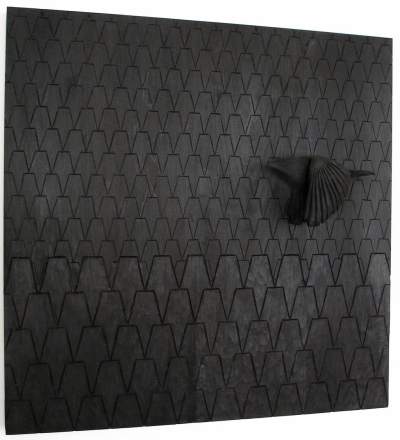
Next month the Library of America publishes two collections of Edmund Wilson’s criticism.
While reading the first, Literary Essays and Reviews of the 1920s and 30s, I was struck by “Poe at Home and Abroad,” in which Wilson ponders Americans’ failure to embrace Poe as a serious writer despite his critical acclaim in Europe. (His influence permeated “a whole half-century of [French] literature,” but his work “so completely failed to impress itself upon the literature of Poe’s own country that it is still possible for Americans to talk about him as if his principal claim to distinction were his title to be described as the ‘father of the short story.'”)
As a critic Poe developed complex ideas about the aims of literature, and he sought to implement his theories in his writing. So he was not a typical romantic, but one who brought to romanticism “a new aesthetic discipline.” For Wilson, Poe’s poetry approaches “the indefiniteness of music — that supreme goal of the symbolists.” A narrator hears the approach of darkness; night falls with a dull, paralyzing weight; lamp flames emit an unbroken “strain of melodious monotone.”
His fiction also relies on confusion of the senses, and flies in the face of dogged realism. It is intended to instill in the reader very specific feelings — not just fear and horror, but also dread of evil impulses that appear suddenly, overtaking reason and the senses. Says Wilson:
Poe’s theory of short-story writing was similar to his theory of verse. “A skilful artist,” he writes, “has constructed a tale. If wise, he has not fashioned his thought to accommodate his incidents; but having conceived, with deliberate care, a certain unique or single effect to be wrought out, he then invents such incidents — he then combines such events as may best aid him in establishing this preconceived effect.” So the real significance of Poe’s short stories does not lie in what they purport to relate. Many are confessedly dreams; and, as with dreams, though they seem absurd, their effect on our emotions is serious. And even those that pretend to the logic and the exactitude of actual narratives are, nevertheless, also dreams. The happenings in them differ from the mere macabre surprises and the astonishing adventures and voyages of such imitators of Poe as Conan Doyle. The descent into the maelström is a metaphor for the horror of the moral whirlpool into which, with some justification, Poe had, as we know from more explicit stories, a giddy apprehension of going down; the precariously delayed dissolution of M. Valdemar stands for that horror of living death that figures also in Premature Burial, which, arising from whatever blight, haunted Poe all his later life. No one understands better than Poe that, in fiction and in poetry both, it is not what you say that counts, but what you make the reader feel (he always italicizes the word “effect”); no one understood better than Poe that the deepest psychological truth may be rendered through phantasmagoria. Even the realistic stories of Poe are, in fact, only phantasmagoria of a more circumstantial kind. Any realism of any age which does not convey some such truth is, of course, bound to be unsatisfactory. And today when a revolt is in progress against the literalness and superficiality of the naturalistic movement that has come between Poe’s time and ours, he ought to be of special interest.
Image of Ty Harvey’s Ghost of Bird 1 taken from his website.